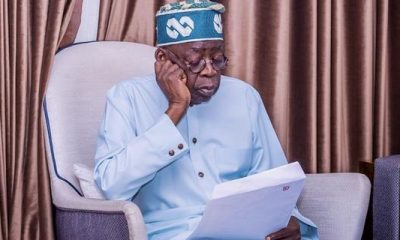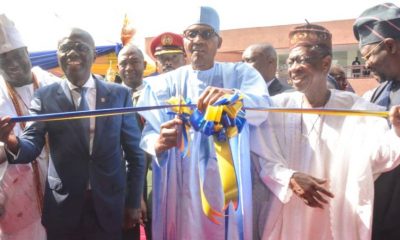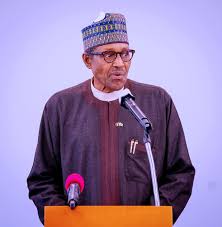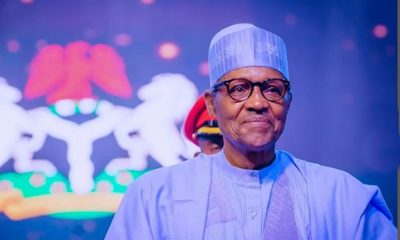ONLY some days ago, history was repeated when the State House reporter of the Punch newspaper, Mr. Olalekan Adetayo, was ignominiously harassed out of the State House, otherwise known as Aso Rock Villa, Abuja, by the Chief Security Officer (CSO), Babachir Abubakar, for being the author of two well-crafted articles, titled, “Fresh anxiety in Aso Rock over Buhari’s health” and “Seat of power’s event centres going into extinction”. In a military style, reminiscent of our sordid military past, Babachir Abubakar gave a peremptory forward-march order to Adetayo, from inside the Villa, through the gates, drawing the attention of all security officers present to Adetayo’s face and tempestuously bellowed orders that Adetayo should not be allowed into the State House any more.
Thereafter, his accreditation was withdrawn.
In the moment of his thoughtless anger, Babachir Abubakar momentarily forgot that Nigeria is no longer in the hands of the military, even though his appointor is a retired general in the Nigerian Army. In 1984, the military, under General Muhammadu Buhari, enacted Decree No. 4, which gave short shrifts to journalists, many of whom were cavalierly manhandled and several others made to serve jail terms for publishing facts that the Buhari Administration then thought unsavoury.
But those were the heady days of military authoritarianism; the days when fundamental human rights and freedom of the press were banished from the military consciousness and, ipso facto, from the body politic. Abubakar should have realized that the Nigeria of 2017 is a country governed by the rule of law and the due process of the law; that Nigeria is a signatory to divers treaties and declarations, such as the Universal Declaration of Human Rights, 1948, the African Charter of People’s Rights, etc., all of which put an accent on fundamental human rights and on freedom of the press; that Nigeria now has a Constitution, the 1999 Constitution, which is the grundnorm of the Nigerian legal system, and that sections 22 and 39 thereof respectively enshrine freedom of the press and unfettered freedom of speech, subject only to law of libel.
“The press, radio, television and other agencies of the mass media”, section 22 of the 1999 Constitution forcefully states, “shall at all times be free to uphold the fundamental objectives contained in this Chapter and uphold the responsibility and accountability of the Government to the people.” Section 39 (1) of the Constitution, the fundamental law of this nation-space (as amended), expands the freedom of expression from the ambit of the media to the domain of individual citizens by further reinforcing the provisions in section 22: “Every person shall be entitled to freedom of expression, including freedom to hold opinions and to receive and impart ideas and information without interference”, it intones.
Babachir Abubakar, a security officer, ought to understand that every citizen of Nigeria has inalienable fundamental human rights, which are enshrined in the Constitution of the Federal Republic of Nigeria. But, perhaps, he does not know or understand this basic fact, being a security man! In that or any event, he should have consulted with those whose business it is to interact with the media, such as the Hon. Minister of Information (no failsafe approach) or the Senior Special Advisers to the President on Media and Publicity for guidance. His failure to do this is another clear indication that there are institutional conflicts and uncoordinated efforts in the Executive. Every official, inebriated with power, does what he/she likes to the eternal exclusion of all others: the National Assembly is on its own; the Executive is on its own; even the agencies within the Executive, such as the Department of State Security (DSS), the National Intelligence Agency (NIA), etc. are all on their own.
We wish to appeal to this government to call all its officials to order by educating them on the principles of democracy in contradistinction to the dictate of military rigorism or autocracy, which flies at a tangent from fundamental human rights.
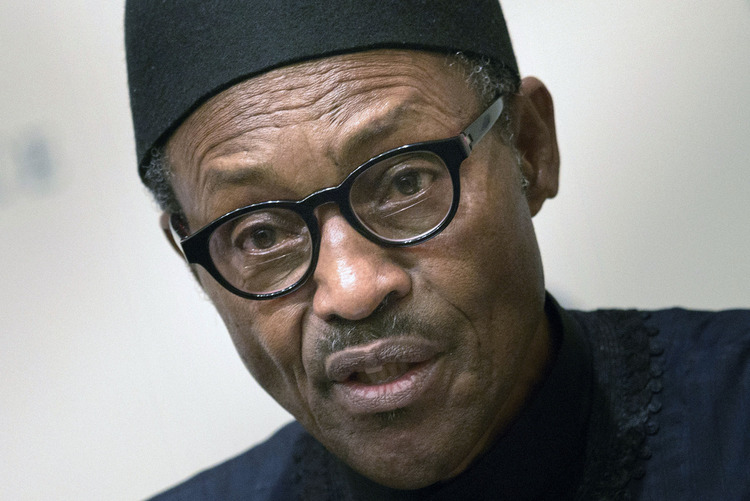

 Entertainment5 days ago
Entertainment5 days ago
 Health1 week ago
Health1 week ago
 Health4 days ago
Health4 days ago
 Football1 week ago
Football1 week ago
 Football1 week ago
Football1 week ago
 Crime4 days ago
Crime4 days ago
 Education6 days ago
Education6 days ago
 Crime1 week ago
Crime1 week ago

